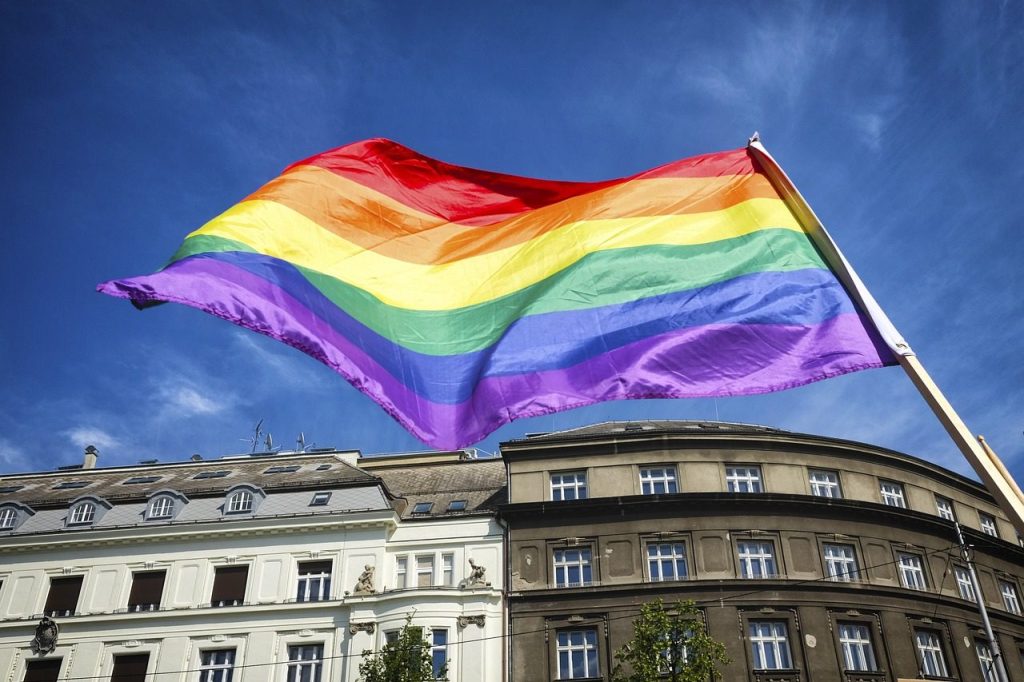Have you ever been talking with older relatives or watching an old movie and heard them use a saying that made you go “Huh? You can’t say that anymore!” Maybe it was a phrase that seemed racially insensitive, promoted harmful stereotypes, or just felt kind of sexist or mean-spirited.
The thing is, a lot of these sayings have been passed down through generations and were coined back when society was a lot less conscious about racism, sexism, ableism and other forms of discrimination.

Back then, people didn’t always realize how hurtful or narrow-minded some of this language could be. But nowadays, most people recognize that we need to do better when it comes to being respectful of all ethnicities, genders, identities, and backgrounds with our words.
In this blog post, we’re going to break down 25 traditional sayings and idioms that are now broadly considered offensive, insensitive or just no-longer-acceptable to use.
The goal is to raise awareness, understand different perspectives, and keep our rhetoric as inclusive and respectful as possible in the modern day.
“Don’t be an Indian giver”
This phrase accuses Native Americans of being untrustworthy givers who take back gifts, perpetuating negative stereotypes. Its origins likely come from misunderstandings between cultures about traditions of reciprocal giving, but it paints all Native people as stingy or deceitful.
Using ethnic groups as insults or jokes promotes discrimination. It’s best to avoid this insensitive, archaic phrase altogether.
“That’s so gay”

For many decades, using the word “gay” as a synonym for something being stupid, undesirable or lame has been considered derogatory and homophobic slang. It demeans LGBTQ identities by using their sexuality as an insulting adjective.
Even if not directed at a specific person, using “gay” in this negative way perpetuates intolerance and should be avoided, especially by straight/cisgender people. There are so many other words in the English language to use instead of this offensive one.
“No can do”
Mocking languages and accents by purposely using broken English like “no can do” is rooted in xenophobia and cultural insensitivity. This phrase portrays Asian immigrants and non-native English speakers in an offensive, stereotypical way by impersonating their language skills.
Using an exaggerated impersonation voice amplifies the offense. It’s best to avoid this kind of derogatory impression at all costs.
“Don’t be such a gypsy”
The term “gypsy” is widely considered an offensive ethnic slur referring to the Romani people. It perpetuates many negative stereotypes of Romani people living wandering, nomadic lifestyles or being untrustworthy vagrants.
Using “gypsy” in any idioms referencing being noncommittal or unreliable is insensitive and promotes these harmful stereotypes against an entire ethnic group.
“Don’t jew me down”
Sayings that accuse Jewish people of being stingy or greedy with money perpetuate an extremely hurtful and damaging age-old stereotype. Using someone’s race, religion or ethnicity in any phrase about being cheap or bad with finances promotes blatant discrimination.
It’s never okay to use this kind of derogatory idiom that disparages an entire group.
“That’s so white/white people things”
Making generalizations that put down an entire race as all thinking or acting a certain way is textbook racial stereotyping.
Comments that imply all white people have cultural “blind spots,” unearned privileges, or homogeneous experiences due to their race are overly broad and offensive. It dismisses diverse perspectives and perpetuates an us vs them mentality between racial groups.
“Don’t go OCD on me”
Using mental health conditions like obsessive compulsive disorder (OCD) as flippant adjectives for someone being overly fixated or uptight is insensitive.
OCD is a real, serious mental illness that causes distress – not just a quirky personality trait. Remarks minimizing disabilities as personal quirks perpetuate the stigma and lack of understanding around them.
“Don’t be such a spaz”
The word “spaz” originated as an offensive slur referring to “spastic,” an outdated term for people with muscle disorders, neurological disabilities or cognitive impairments.
Using what’s considered derogatoryableist language to insult someone promotes discrimination against the disabled community. There are plenty of other words to use besides this insensitive term.
“He’s such a shaman”

While perhaps intended as a positive comparison about someone’s spirituality or healing presence, using the word “shaman” perpetuates stereotypes and trivializes a sacred religious tradition from Native American cultures.
Co-opting indigenous spiritual concepts and figures for frivolous pop culture analogies is a form of cultural appropriation and can be viewed as disrespectful.
“Don’t be such a princess”
Insults that question someone’s masculinity or feminize them by calling them a “princess” are rooted in outdated sexist attitudes.
It implies that femininity and traditionally feminine traits like being emotional are inherently negative, weak or undesirable – an example of misogyny. These gender-based put-downs promote unhealthy social norms about how people “should” behave based on gender.
“Don’t be a tinker”
“Tinker” is an ethnic slur that refers to the nomadic Traveler community, particularly those of Irish heritage living an itinerant lifestyle.
Using it to call someone cheap, irresponsible or untrustworthy perpetuates extremely harmful stereotypes against Traveler culture and promotes discrimination.
“Don’t ghetto/ratchet something”
Using dismissive urban slang words like “ghetto” or “ratchet” to negatively describe something as lowbrow, trashy or unsophisticated is widely considered offensive.
It demeans and perpetuates derogatory stereotypes about disadvantaged inner-city communities of color and their cultures – another form of racism born from classism.
“Don’t be a thug”
While originally referring to violent criminals, “thug” has become a racially-charged insult used to perpetuate the racist stereotype of aggressive, dangerous Black masculinity.
Using this kind of coded discriminatory language to criticize someone promotes harmful prejudice that should have no place in modern discourse.
“Don’t be a drunk Indian”
Promoting the false, damaging stereotype that all Native Americans are alcoholics or substance abusers is blatant racism.
This saying perpetuates the myth that alcoholism is ingrained in all indigenous cultures and individual Native people can’t be seen outside of that lens – a belief rooted in centuries-old discrimination.
“The white man’s burden”
This phrase comes from an 1800s poem justifying colonial oppression under the guise of Western nations having an obligation to “civilize” and impose their cultural values on non-white peoples of the world – an inherently racist and dehumanizing mentality.
The term promotes antiquated ideals about racial and cultural superiority.
“You’re so crazy/mental”

Using ableist language like “crazy” or “mental” as negative adjectives to insultfully describe someone’s personality perpetuates stigma around mental health conditions and neurodivergence.
It equates having a psychological disorder with simply being irrational or undesirable, trivializing legitimate disorders.
“Don’t be such a Scrooge”
While the name comes from the famously stingy Ebenezer Scrooge in A Christmas Carol, calling someone a “Scrooge” as an insult plays into long-standing hurtful stereotypes of Jewish people being greedy misers obsessed with money.
The bigoted trope promotes intolerance.
“That’s insane/crazy/schizo”
Using clinical terms for mental health disorders like “insane,” “crazy” or “schizophrenic” as metaphors to criticize something as unreasonable or illogical further stigmatizes and trivializes conditions like schizophrenia.
It implies sufferers of those disorders are inherently irrational or unhinged, perpetuating prejudiced beliefs.
“Don’t be such a btch”
Misogynistic insults like “btch” are used to shame and silence people, particularly women, for being assertive, ambitious or confident. Weaponizing gendered slurs like this is rooted in the sexist belief that women shouldn’t speak up or challenge male authority – a toxic attitude that needs to be eliminated.
“Don’t act like a spook”
A deeply offensive historical term used to mock, intimidate and express racist hatred toward Black people, using the word “spook” in any modern context can understandably be interpreted as a racial slight or slur that reinforces that ugly legacy of discrimination and intolerance.
“Don’t be a sell-out”
While meant in modern times as an insult accusing someone of being disingenuous or compromising their values for an agenda, the term “sell-out” has extremely dark racial undertones tied to the trans-Atlantic slave trade where African people were literally bought and sold. Be mindful of that traumatic historical context.
“Don’t be such a sissy”

The insult “sissy” is used to question someone’s masculinity or make them feel inferior for perceived weakness or femininity. It stems from antiquated, damaging gender norms about how “real men” should look or act that promote toxic masculinity and sexism.
“That’s so white trash”
Classist insults like “white trash” that mock and look down on poor, working-class white people as being low-class, uncultured or trashy are extremely derogatory.
It perpetuates negative stereotypes about an entire socioeconomic group based on their income level and background. Terms that marginalize the underprivileged promote discrimination.
“The peanut gallery”
While it may seem like an innocuous idiom referring to the cheap admission seats where unruly audience members sat, the phrase “peanut gallery” actually has racist origins.
It referred to the segregated section of theaters where Black people were forced to sit, removed from the main crowds, and subjected to humiliating treatment while being called “peanut gallery.” Using terms rooted in oppression is hurtful.
“That’s so retarded”
One of the most insensitive and universally condemned insults, using “retarded” to describe something as stupid or undesirable is incredibly derogatory toward people with intellectual disabilities. There’s no excuse for deploying this kind of hate speech that marginalizes a vulnerable group.
The reality is, our language is absolutely packed with sayings and figures of speech that perpetuate negative stereotypes, discriminate against certain groups, or minimize the struggles of marginalized communities.
A huge number of phrases we consider “harmless” are actually rooted in really ugly histories of racism, sexism, ableism, and oppression.
Now, does that mean we should feel endlessly guilty about every imperfect thing we’ve said in the past? Of course not! A lot of these sayings have been so embedded in our culture for generations that many people simply weren’t aware of their troubling undertones.
The important thing is being willing to listen, learn, and make changes to our language as society progresses and evolves. Being more conscious about avoiding hurtful rhetoric isn’t about harsh criticism – it’s about treating all people with dignity and respect.